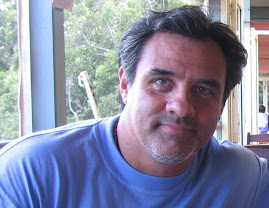Labor wins 2007, so...
From a few convicts dropped ashore in 1788, Australia has developed into a good global economy. The reforms broght by former Prime Minister Bob Hawke and Treasurer Paul Keating during the 1980s set the stage for a remarkable run of prosperity. Specifically, they
= slashed import tariffs,
=floated the currency and
=reduced the power of big labor.
John Howard, has continued and expanded these reforms riding a wave of economic growth: 14 years of uninterrupted 4% to 5% growth. The national debt has virtually been eliminated; the currency is strong, the government recently signed a free trade pact with the U.S. and is starting to negotiate a pact with China. Australia received $52 billion in foreign direct investment in 2006.
Why would any voter want to make a change after this spectacular record? Part of it is the feeling that a change in leadership is a bit overdue. Even Howard has said that, if victorious, he would step down before 2010.
Next are the country's rising borrowing costs with six rate hikes by the Reserve Bank of Australia since 2004, putting the benchmark short-term rate at an 11-year high. The last hike was just last week forcing Howard to apologize for not keeping his pledge to keep rates flat.
Rudd has also run a shrewd campaign, which has reassured voters a focus on bread and butter issues like health and education.
Normally, a Labor win would not be good for the stock market but this time the impact of a less conservative government might be muted by several factors.
=First, the higher rates are dampening inflationary pressure and keeping the Aussie dollar at 23-year highs against the U.S. dollar. This supercharges returns for dollar-based investors. Economic growth remains strong as the economy seems to be able to weather its own real estate bubble. Australia's compulsory pension program accounts for almost two-thirds of the stock market's $1.6 trillion market value, also providing some support for the market.
Australia's stock market is trading at 15.5 times earnings, according to data from Thomson DataStream, which is not unreasonable. The country continues to sit on the sweet spot of the commodity and China growth stories. Financial and energy/resource stocks account for a remarkable 60% of the market, a number similar to that in Canada. Plus the BHP Billiton (nyse: BBL - news - people ) play for Rio Tinto (nyse: RTP - news - people ) will continue to attract attention to the market.
BHP underscores Australia's strength as a resource rich country. Australia is a leading supplier of core steelmaking raw materials, the world's second-largest copper producer, the world's second-largest exporter of energy coal and a significant producer of oil and gas.
So, to Australia's Prime Minister- Kevin Rudd...who comes to power with some of the best foreign policy credentials around, including mastery of the Chinese language. He is a relative novice , having never served in the national government. He has been an elected politician for nine years, relatively few for an Australian lawmaker.
He is a left-wing leader from one of Australia's most conservative states, Queensland, born to a tenant farmer who was a member of the conservative Country Party.
He pointed out that irony when he paid tribute to his father, Bernie, whose death in a car accident in 1969 left himself, his mother, and two siblings homeless and reliant on the charity of relatives and neighbors — a time that he says shaped his socialist leanings.
And even more surprising...Peter Costello says he ''would not seek nor accept'' a nomination to be the new opposition leader and instead would step away from politics for a business career. Australia's longest serving treasurer, who had long dreamed of being prime minister, made the shock announcement in Melbourne today, saying he would stay on in parliament for now and then move on.
No comments:
Post a Comment